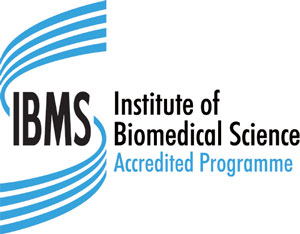
Biomedical Science
BSc (Hons)
- Typical offer for 2024
- Duration
- UCAS code
Suitable for applications.
You get so much support from academics, from pastoral care and that sort of thing which is absolutely brilliant – it makes you feel like you're a part of your course. You're not just learning here, they make you feel like you're a colleague.
Placement Year
Some students choose to use the experience gained in the first and second years of the course to work in an industrial or research laboratory, although this is not a requirement of the course (for compulsory placement see Healthcare Science).
This optional year outside the University gives you the opportunity to explore potential careers in research and diagnostics, and gain valuable experience useful in the laboratory-based final year project.
Students who wish to complete a year-long placement module will transfer to a 4-year version of the degree.
In the past, students have found a wide range of placements in hospitals (Yorkshire and Humber or local to their home), universities and companies including Astra Zeneca, Covance, Johnson & Johnson, GlaxoSmithKline, Mast Laboratories, Nestlé and the Sanger Centre in Cambridge.
We strongly recommend you take advantage of this opportunity. Your placement module leader will advise and help you organise your placement. We fully expect you will find the whole experience of great benefit to you, increasing your subject-specific skills and confidence - both as an individual and in your career.
Learning and assessment
Formal lectures will facilitate your acquisition of knowledge and understanding and discipline specific skills. Laboratory sessions run in conjunction with the theoretical components will give you the opportunity to enhance your understanding of particular topics.
You will be examined, primarily, on the breadth of knowledge via MCQ and short answer examinations. Coursework assignments will give you the opportunity to gain experience in report writing and data handling and interpretation. As you progress through the programme you will have the opportunity to demonstrate increasing skills of analysis, synthesis and criticism through a wide variety of assessment strategies, including written and oral examinations, report writing, case studies, group work, essays, including a dissertation, oral presentations and the project report. The project report provides a major opportunity to demonstrate autonomy in data handling and critical interpretation in a research context.
Course assessment
The majority of modules contain exam and coursework assessment, particularly important for a laboratory based science course. Overall 48% of the course is assessed by coursework. The percentage assessment by coursework increases on progression through the course to reflect development of independent laboratory and study skills.
Study support
Our comprehensive support services will help you to achieve your full potential – both academically and personally.
We provide all you need to make the very best of your time with us, and successfully progress through your studies and on into the world of graduate employment.
Our support services include:
- Personal tutors
- Disability services
- Counselling services
- MyBradford student support centres
- The Students’ Union
- Chaplaincy and faith advisers
- An on-campus nursery
- Halls wardens
We have well-stocked libraries and excellent IT facilities across campus. These facilities are open 24 hours a day during term time, meaning you’ll always find a place to get things done on campus.
Our Academic Skills Advice Service will work with you to develop your academic, interpersonal and transferable skills.
Research
Our research expertise covers a range of areas including microbiology, cancer research, skin sciences and cardiovascular disease research. You can find out more about two of our research areas below:
Celebrating 50 Years: 50 Stories
Professor Laurence Patterson talks about Bradford’s longstanding expertise in cancer medicines discovery and development, and explains how researchers are working hard to find novel cancer treatments:

